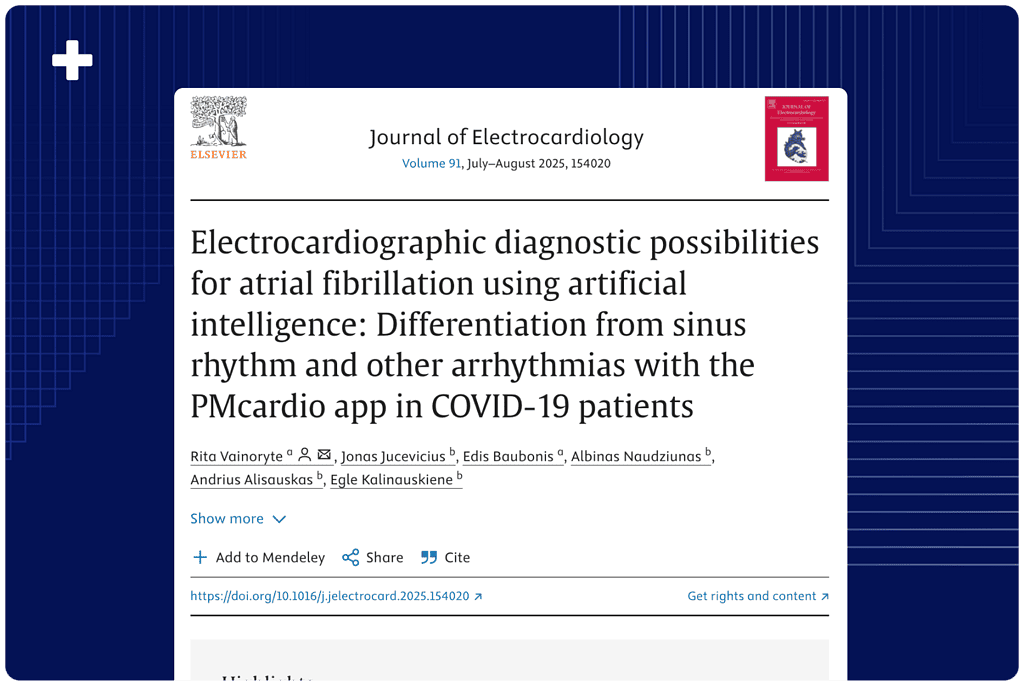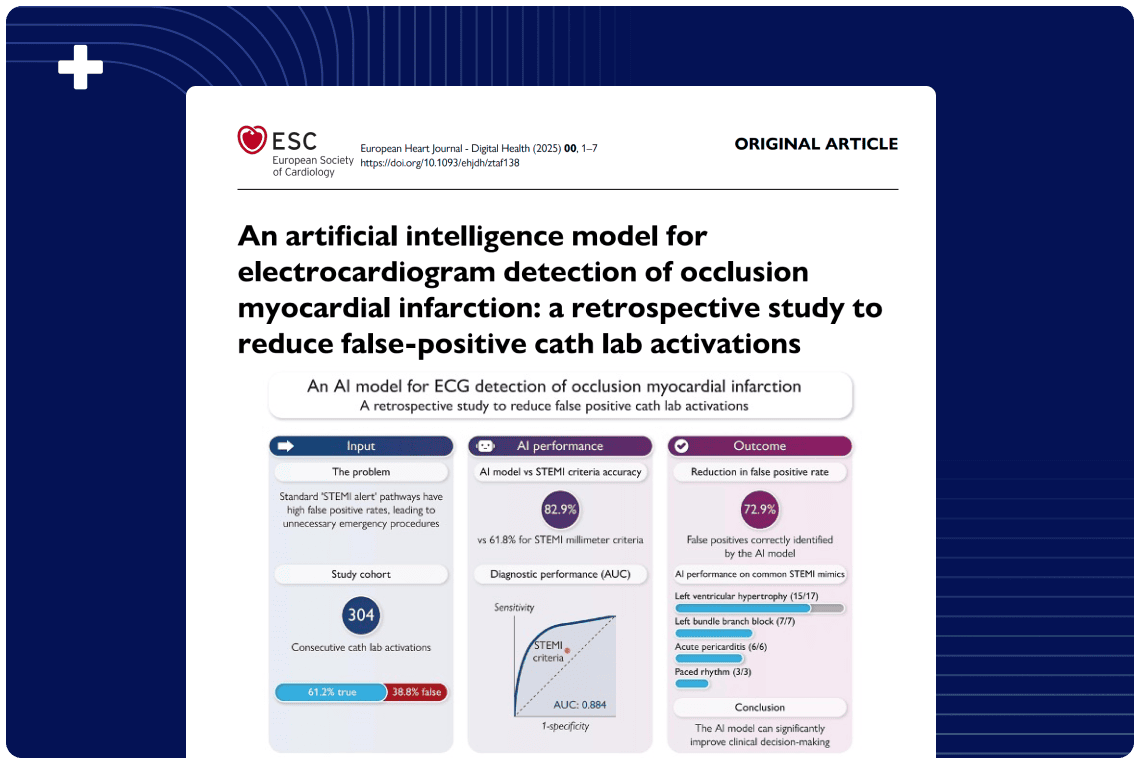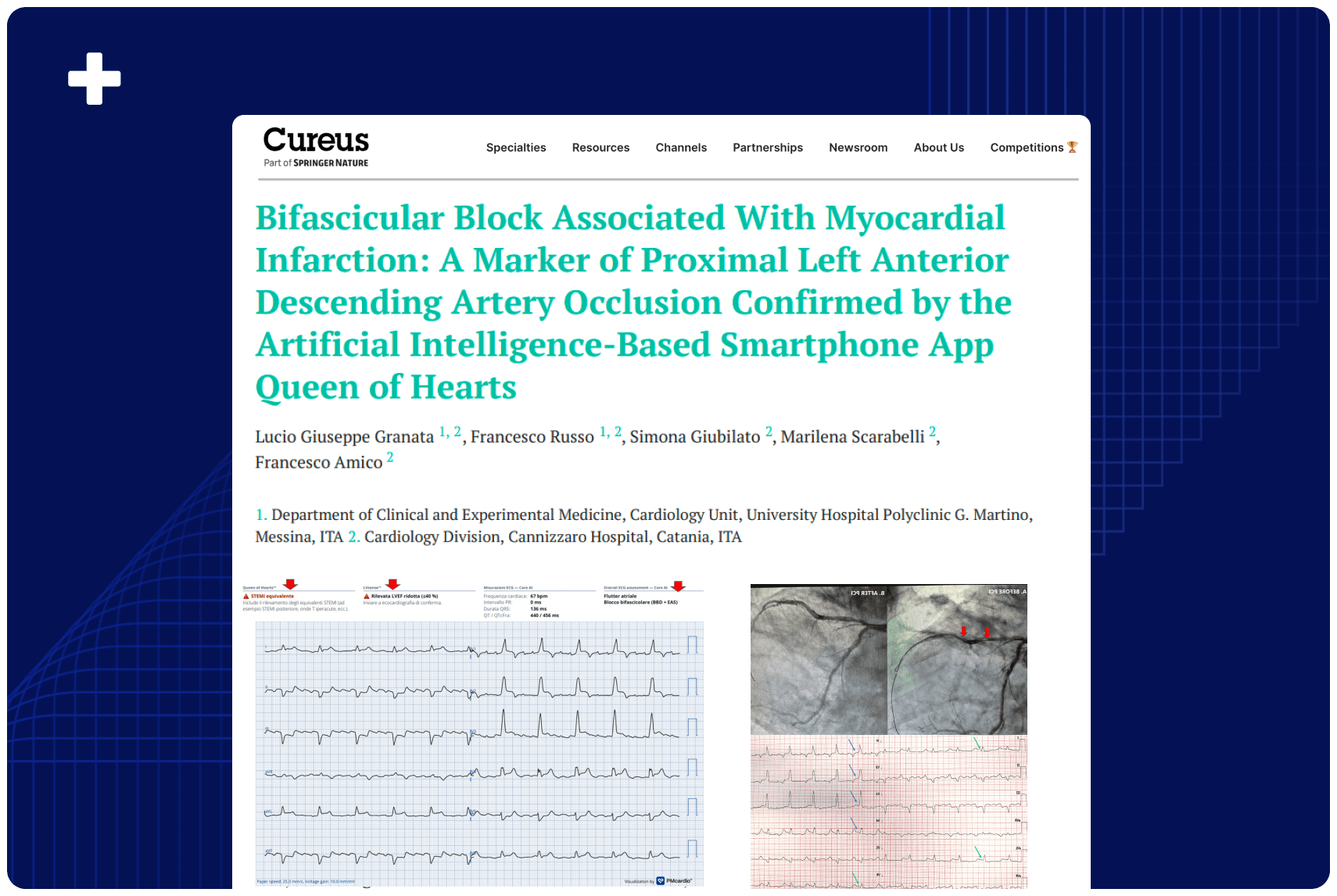Overview
This study evaluated how effectively artificial intelligence can detect atrial fibrillation (AF) in COVID-19 patients using ECG analysis. Researchers compared the PMcardio AI application’s performance with that of cardiologists and infectious disease specialists. Among 116 hospitalized COVID-19 patients, PMcardio achieved perfect diagnostic accuracy (sensitivity and specificity of 1.00) for AF detection, matching cardiologists and surpassing infectious disease specialists. The AI’s performance remained consistent across confidence levels, and its severity assessments correlated significantly with rhythm findings. These results highlight AI’s potential to improve arrhythmia detection, streamline care, and reduce unnecessary in-person evaluations during infectious disease outbreaks.
Published in: Journal of Electrocardiology
Published on: 10 May 2025
Background
Artificial intelligence (AI) has shown potential in enhancing ECG analysis, but its accuracy in detecting atrial fibrillation (AF) in COVID-19 patients remains unstudied. Given the increased risk of arrhythmias and thromboembolic events in this population, AI could aid in timely correct diagnosis, reduce unnecessary consultations, tests, and minimize infection spread. This study evaluated the diagnostic performance of the AI-based PMcardio application in detecting AF in COVID-19 patients.
Methods
The study analyzed 116 hospitalized COVID-19 consecutive patients using paper-based medical records, with a particular focus on ECGs. The presence and type of arrhythmias were determined by an experienced cardiologist and compared with assessments by the infectious disease specialists collected from patient medical records and the PMcardio application.
Results
The mean patient age was 63.28 (14.980) years. The PMcardio AI application demonstrated perfect diagnostic performance, achieving a sensitivity and specificity of 1.00 for AF detection compared to cardiologist’s evaluations. Infectious disease specialists showed lower sensitivity (0.85) but retained high specificity (0.97). No significant association was found between the AI confidence score and diagnostic accuracy (p = 0.660), indicating consistent performance across confidence levels. Additionally, the AI’s severity classification correlated significantly with rhythm diagnoses (p < 0.001).
Conclusion
AI-powered ECG analysis using PMcardio highly accurately detected AF in COVID-19 patients, outperforming infectious disease specialists and matching cardiologist’s accuracy. The integration of AI in clinical practice may enhance arrhythmia detection and streamline diagnostic workflows, particularly in resource-limited and infectious disease settings.
Authors: Rita Vainoryte, Jonas Jucevicius, Edis Baubonis, Albinas Naudziunas, Andrius Alisauskas, Egle Kalinauskiene
















